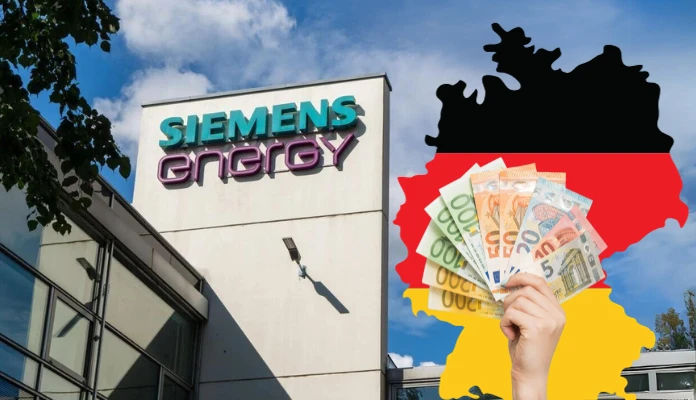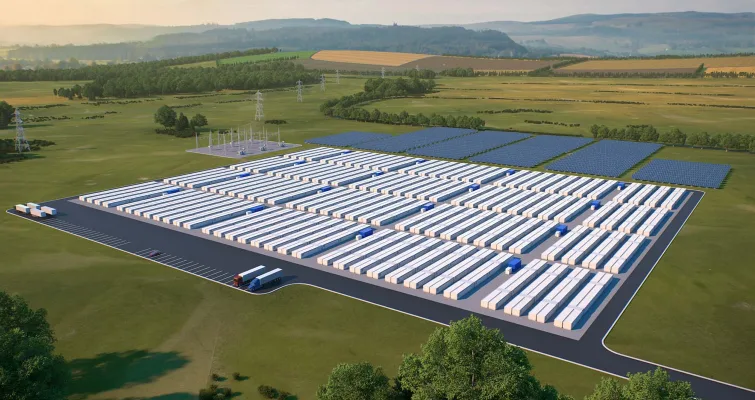In a critical move to support its energy transition, the German government has committed €7.5 billion ($8 billion) to salvage Siemens Energy, a leading wind turbine manufacturer essential for the nation’s shift towards renewable energy. This rescue package is part of a larger €15 billion ($16.3 billion) effort, supplemented by private banks and other stakeholders, as announced by Germany’s ministry for economic affairs and climate protection.
The government’s financial support hinges on specific conditions: Siemens Energy must halt dividend payments to shareholders and suspend bonuses for its board members. The state guarantee is contingent on the fulfillment of obligations by all involved parties.
This intervention highlights the financial challenges nations face in transitioning away from fossil fuels and underlines Berlin’s reliance on Siemens Energy. The company, a spin-off from the renowned German electronics giant Siemens, which holds a 32% stake in the firm, is pivotal in Germany’s energy strategy.
Preparation for this rescue plan involved extensive discussions between the federal government, Siemens Energy, Siemens, and private lenders over several weeks. Siemens Energy, a significant player in both conventional and renewable energy sectors, reported a revenue of about €29 billion ($32 billion) in the last fiscal year.
The company’s product range extends beyond wind turbines to include gas-powered turbines and hydrogen energy electrolyzers. Its technologies are crucial, contributing to roughly one-sixth of the world’s electricity production. With a workforce of 94,000 across over 90 countries, the company’s influence is global.

The financial backing is critical for Siemens Energy to fulfill its substantial €110 billion ($119 billion) order backlog. A spokesperson for Siemens Energy expressed gratitude for the government’s unequivocal support and its commitment to ensuring the success of the energy transition projects.
However, the company has encountered manufacturing issues with some wind turbine models this year, anticipating a loss of €4.5 billion ($4.9 billion) for the current financial year. These challenges led to a nearly 40% plunge in its stock last month, although it rebounded slightly by 3% following the announcement of the support package.
The German ministry recognizes Siemens Energy as a key player in the energy systems supply chain and a significant employer in future-oriented industries.
This support comes as Germany, Europe’s largest economy, grapples with replacing Russia as its primary natural gas supplier following Moscow’s invasion of Ukraine. The quest for more affordable and sustainable energy sources is crucial, especially for German manufacturers, who have faced soaring gas prices.
The economic pressure is compounded by a weakening Chinese market and rising interest rates, leading to the fastest job cuts in the German manufacturing sector in three years, amid declining orders and persistently negative confidence.
More To Discover
- Antarctica’s Ice Melt Matters: A Disappearing Act with Global Consequences
- U.S. Bets Big on Small Innovative Reactors for Nuclear Comeback
- Microplastics Are Basically Everywhere: Meat, Water, Produce, Packaging, Seafood And More. But Can They Really Hurt Us?
- Lego’s Environmental Pivot: The Company Is Facing The Harsh Realities of Sustainable Plastics And Taking A Stand Against Greenwashing
In summary, Germany’s substantial investment in Siemens Energy not only aims to rescue a vital company but also reflects the broader, complex challenges of transitioning to green energy amid geopolitical and economic pressures.
This move underscores the critical role of government support in achieving ambitious renewable energy goals and sustaining industrial growth in the face of global challenges.





















